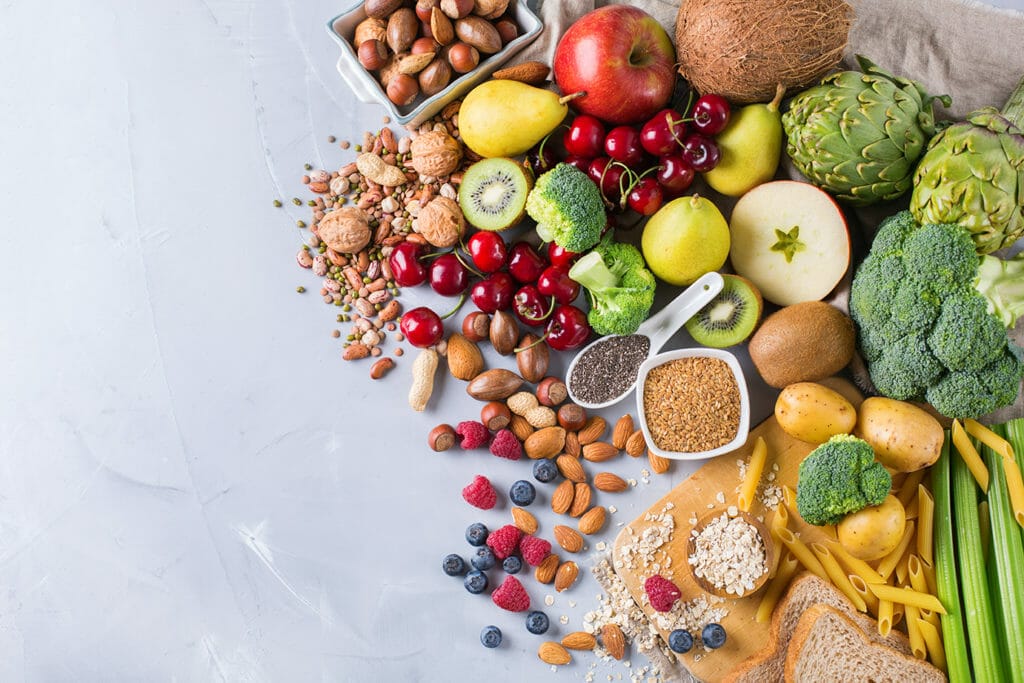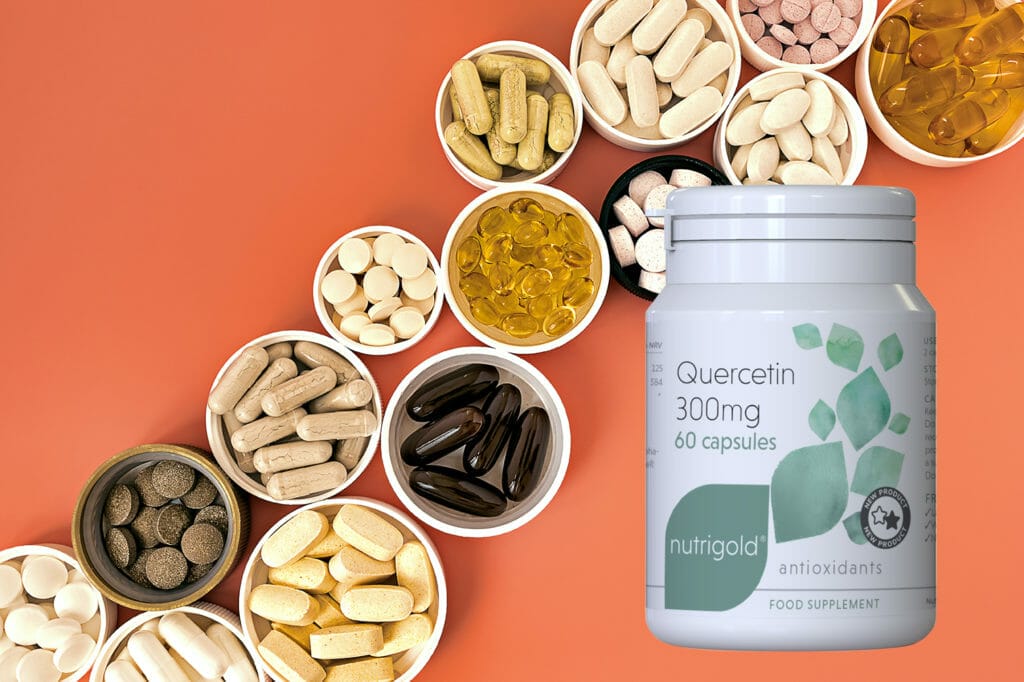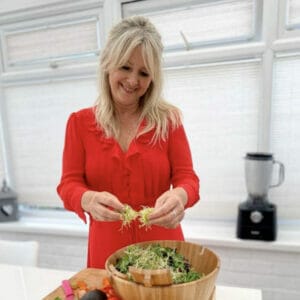A Novel Phytonutrient Approach in Tackling Long Covid
For some people, contracting coronavirus (COVID-19) doesn’t just mean a few days of feeling poorly; it’s now reported that as many as 30% of those expressing the initial illness continue to experience a baffling constellation of symptoms including heart palpitations, insomnia, dizziness, joint pain and depression that can last weeks or months after the initial infection has subsided; welcome to one of the world’s newest diseases – post-COVID-19 syndrome or “Long COVID”.[1]
Yet there remains considerable uncertainty about Long Covid treatment and resolution in mainstream medicine; with so many diverse systems and organs impacted at different times and different levels of severity from person to person, using a multidisciplinary or personalised functional medicine approach is increasingly becoming a useful approach.
Functional Medicine
At the heart of the functional medicine systems-based approach is to optimise a patient’s modifiable lifestyle factors in order to improve overall immune function and system support. This is done through personalised programmes adapting diet, stress and sleep patterns to:
- Favourably modulate cellular defence and repair mechanisms.
- Favourably modulate viral-induced pathological cellular processes.
- Promote viral eradication or inactivation.
- Mitigate collateral damage from other therapeutic agents.
- Promote resolution of collateral damage and restoration of function.
Diet is the main starting point to address all of the above points and none more so than emphasising the importance of phytonutrients found throughout different plant whole foods.

Phytonutrients & Coronavirus
A coronavirus such as SARS-CoV-2 can wreck acute and long-term havoc in a body where the immune system is compromised (either from an underlying illness or simply a stressed and/or nutrient deficiency) because of its ability to stimulate a part of the innate immune response called the inflammasome, which can cause an uncontrolled release of pro-inflammatory cytokines, leading to a cytokine storm and severe, sometimes irreversible, damage to the respiratory epithelium and beyond.[2] The SARS-CoV-2 virus has been shown to activate the NLRP3 inflammasome, which also triggers mitochondrial dysfunction, contributing to long-term cellular dysfunction, a major underlying mechanism in diverse Long Covid symptoms.[3]
However, there are some natural plant-based polyphenol compounds that including Aloe vera, resveratrol, curcumin, EGCG [epigallocatechin gallate] – a major polyphenol found in green tea, and quercetin that are potent inhibitors of NLRP3 inflammasome-mediated pro-inflammatory production, typically acting synergistically at more than one element of the involved inflammatory pathways. Importantly, these polyphenols have an even broader biological effect, as they influence a variety of pathways including those that counteract the COVID-19 hyper-inflammation and mitochondrial dysfunction, as predicted to occur in Long Covid.[4]
Quercetin – A Novel Phytonutrient for Long Covid
Quercetin has long been evaluated for its potential protective effects against cancers, heart disease, and cells that release histamines. Studies suggest that quercetin supplementation may promote antioxidant,[5] anti-inflammatory,5 antiviral,[6] and immunoprotective effects.[7]
And now this polyphenol found naturally in several vegetables such as onions and broccoli, fruits such as apples, berries and cherries, and some seeds and grains, has been shown to promote important anti-inflammatory cell pathways (SIRT2), which in turn inhibit the NLRP3 inflammasome assembly involved with COVID-19 infection and post-infection hyperinflammation.[8] In cell cultures, quercetin has even been shown to prevent viral entry and reduce the cytopathic effects of many viruses, including rhinovirus and poliovirus.[9]
Interestingly quercetin maybe even more powerful when combined with vitamin C as a potential therapy for treating SARS-CoV-2, as vitamin C recycles oxidised quercetin, producing a synergistic effect and enhancing quercetin’s antiviral and anti-inflammatory capability.[10]
An open-label randomised control trial in Turkey currently underway is examining quercetin’s role in COVID-19; 95 patients with COVID-19 are receiving a 1,000mg active treatment dose and 113 healthcare workers a 500mg dose as prophylaxis. In both treatment arms, quercetin is being administered with vitamin C and bromelain. Currently, no COVID-19 cases were recorded among healthcare workers taking prophylactic quercetin and no deaths were observed among patients with COVID-19 on quercetin treatment. These are still small scale studies but the power of natural plant-based anti-inflammatory compounds is gaining traction to provide a useful tool to support Long Covid sufferers.

What Next?
Just reviewing the implications of the sheer number of emerging Long Covid patients suggests there is likely to be a significant drain on health care resources, let alone a country-wide failure to successfully treat Long Covid symptoms, as a specialist approach will simply not fully support areas such as successfully reducing long term hyper inflammation and mitochondrial dysfunction that takes place at a cellular level throughout many systems. This places a functional medicine approach at the heart of addressing Long Covid symptomology, including a diet rich in plant whole foods, plant antioxidant supplements such as quercetin combined with vitamin C, as well as mitochondrial support.
A full discussion into these areas and other possible functional medicine based solutions to Long Covid can be found in the Long Covid CPD accredited nutrihub webinar.

Dr Elisabeth Philipps PhD BSc (Hons) BSc Nutr Med AFMCP
Dr Elisabeth Philipps is a clinical neuroscientist and functional medicine practitioner, and runs a health consultancy specialising in brain health, the endocannabinoid system and phytocannabinoids including CBD and medicinal cannabis. She regularly presents at conferences and events, and provides expert opinion for the national press, specialist healthcare publications and health companies.
You can connect with Elisabeth via:
www.drelisabethphilipps.com | instagram – @drelisabethphilipps | Twitter – @drphilipps | Linked In – Dr Elisabeth Philipps
[1] https://www.clinicaleducation.org/resources/reviews/covid-acute-long-women-and-work/
[2] Fraker PJ, King LE, Laakko T, Vollmer TL. The dynamic link between the integrity of the immune system and zinc status. J Nutr. 2000;130(5S Suppl):1399S-1406S.
[3] Shankar AH, Prasad AS. Zinc and immune function: the biological basis of altered resistance to infection. Am J Clin Nutr. 1998;68(2 Suppl):447S-463S.
[4] Tőzsér, J., & Benkő, S. (2016). Natural Compounds as Regulators of NLRP3 Inflammasome-Mediated IL-1β Production. Mediators of inflammation, 2016, 5460302. https://doi.org/10.1155/2016/5460302
[5] Yi YS. Regulatory roles of flavonoids on inflammasome activation during inflammatory responses. Mol Nutr Food Res. 2018;62(13):e1800147.
[6] Wu W, Li R, Li X, et al. Quercetin as an antiviral agent inhibits influenza A virus (IAV) entry. Viruses. 2015;8(1):6.
[7] Therapeutic Research Center. Natural Medicines Database: Quercetin. https://naturalmedicines.therapeuticresearch.com/databases/food,-herbs-supplements/professional.aspx?productid=434#adverseEvents. Accessed 8th July 2021
[8] Saeedi-Boroujeni, A., Mahmoudian-Sani, MR. Anti-inflammatory potential of Quercetin in COVID-19 treatment. J Inflamm 18, 3 (2021).
[9] Kinker B, Comstock AT, Sajjan US. Quercetin: a promising treatment for the common cold. J Anc Dis Prev Rem. 2014;2:2:1000111.
[10] Luciano, et al (2020) Quercetin and Vitamin C: An Experimental, Synergistic Therapy for the Prevention and Treatment of SARS-CoV-2 Related Disease (COVID-19). Frontiers in Immunology 11







